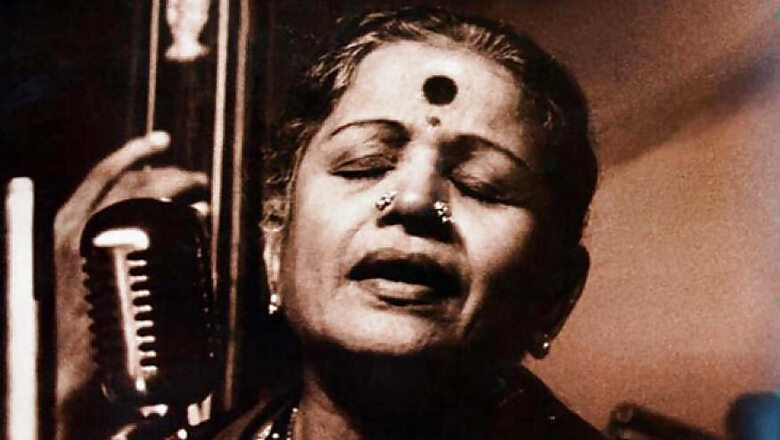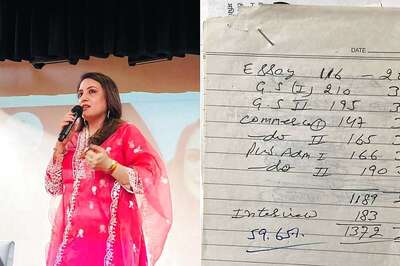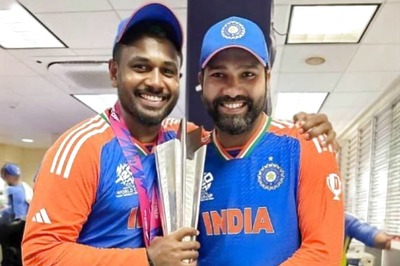
views
MS Subbulakshmi’s soul-stirring renditions enthralled people across generations and her passion shone through in every raga and krithi. Jawahar Lal Nehru, moved after one of her performances, remarked: “Who am I, a mere Prime Minister before a Queen, a Queen of Music” while the poet Sarojini Naidu called her the Nightingale of India. CNN News18 asked two contemporary musicians to share anecdotes about the vocalist and how her music and life have influenced them, on the 100th birth anniversary of the doyenne.
TM Krishna, Carnatic singer and Magsaysay awardee
“MS was a complex being. Her life had many layers and her music travelled from the by lanes of Madurai to the high roads of the US. It's very difficult to put her music in a nutshell. As a Carnatic musician she had an ability to get to the core of the raga and define the essence of the music. However, she could also sing other genres with ease. She was very disciplined and gave a lot of attention to detail. That is something we still need to learn from her.”
“The fact of the matter is that the inside world of Carnatic music has not given MS her musical due. She may have got Sangeeta Kalanidhi and many other awards but the fact is that the real inside world of Carnatic music did not think much of her music. And I personally think the feeling persists that while she may have been a wonderful musician there is a certain disregard for her technical skill. I'm putting this in context because you have to understand my own growth to understand her.”
“MS was always a presence when I was a young man coming up in the world of Carnatic music, learning and attending concerts. But do I really look up to her? The answer is no. Would her music recording be the first thing I’d play in my house? The answer, once again, is no. I’m referring to the early 80’s and 90’s, when we didn't think much of her music. I didn't think much of her music and the music world around me also did not think this was serious Carnatic music.”
“But as you delve deeper into music and go beyond the surface level technicalities then you go to a phase where you experience music differently. The more I started experiencing music like that, the more MS came alive. In a sense she became the essence of what I was looking for in musical experience.”
“I interacted with her on two occasions. The first was in December 1999. Fifty young musicians had decided to celebrate the coming of the Millennium. We organized a concert where seven generations of Carnatic musicians sang. At the stroke of midnight 600 school children would sing Maithreem Bhajata. We wanted MS to sing but that did not work out because by then she was not singing in public. I know she wanted to and was excited about the possibility, but things didn't work out. We did a rehearsal in early December at the Music Academy and were blown away when the students started singing. MS came and listened to them. She corrected them, engaged with them and showed them little nuances.”
“The greatest moment in my life when my guru (who was also MS’s guru) was teaching me a kirthanam. MS walked in and said she didn't want to interrupt class. She joined in and I had the privilege of singing with my guru and MS.”
“MS wasn't innocent, nor was she naïve. She was a very aware human being, very sharp and supremely intelligent. Irrespective of whether she was a musician or not, those qualities are special. That makes her very unique. You look at this wonderful person and say ‘Wow’.”
Unnikrishnan, Carnataic Singer
“I grew up listening to MS Amma because my great grandmother was a huge fan on hers. The morning would start with her songs. It was a daily ritual. But it was only many years later that I actually met her. I met her at one of her cassette release functions where I was supposed to sing the invocation. After I sang, she told me that I’d sung very well. She asked me to come to her place. It is one of the moments I will always cherish. From then onwards, she used to always give me time and I used to go to her place. She gave me tips on music. She wanted young musicians to perform well and would always encourage us. She’s been an irreplaceable influence on classical musicians across age and gender.”
“The purity and the devotion - that's the most beautiful part of her music. Be it her style, the lyrical phrasings, the perfect diction, she set a benchmark for every almost composition that she sang. The combination of her personality and musical prowess was her secret. There was an Indianess about her -the way she dressed, the way she behaved, the way she carried herself on stage. She handled her fame with poise. She was able to manage her family life with music, thanks to her husband who was a huge pillar of strength. She gave almost all her earnings to charity. We all salute her and celebrate not only her music but her humane nature. That is why she is so special.”


















Comments
0 comment